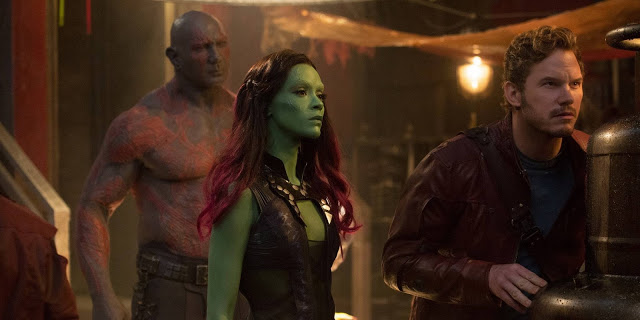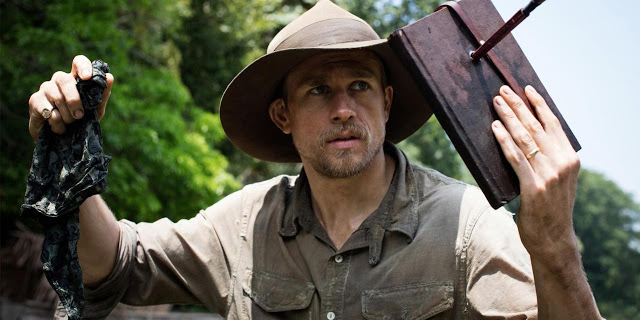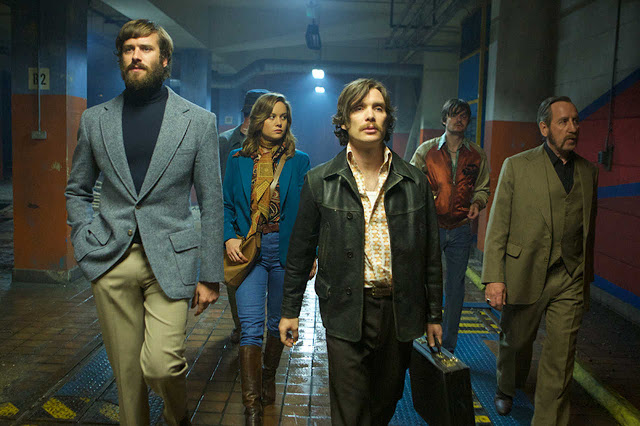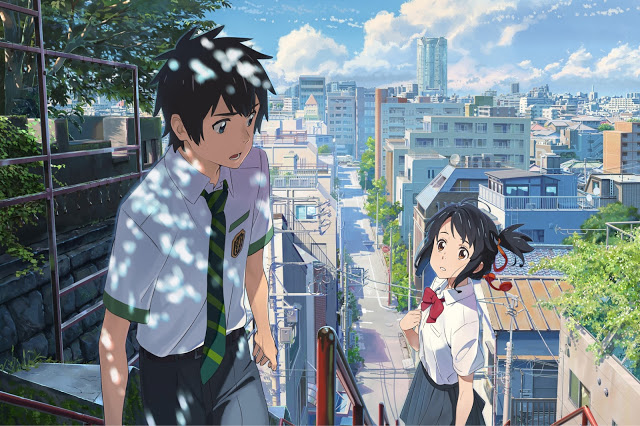Guardians of the Galaxy Vol. 2: Saving the World, One Wisecrack at a Time
In the middle of the hectic opening set piece of Guardians of the Galaxy Vol.2, the green-skinned alien Gamora reproaches two of her squabbling colleagues: “Can we put the bickering on hold till after we survive the massive space battle?” It’s a sensible request that comes from the troupe’s most sensible member, but at the risk of mansplaining (human-splaining?), allow me to point out the flaw in Gamora’s logic. Whereas the typical superhero extravaganza centers on its high-octane action sequences, the first Guardians of the Galaxy made its mark by inverting the formula; it emphasized writing and character, pushing its passable pyrotechnics into the background. With this franchise, the bickering isn’t ornamental—it’s the main attraction.
That canny focal adjustment made the original Guardians a welcome antidote, a rejuvenating tonic that helped offset the fatigue brought on by the glut of superhero pictures constantly invading the American multiplex. The challenge now facing James Gunn, returning as both writer and director, is how to reconcile the bracing freshness of the first installment with the rigid demands of the cinematic universe. The standard operating procedure for comic-book sequels is simply to take what worked the first time around, then blow it up to even greater dimensions, but spunky originality isn’t so easily amenable to magnification. How do you bottle lightning twice? Read More





